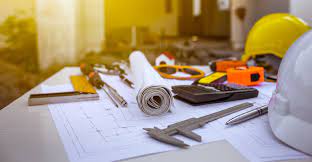In the ever-changing world of real property, property improvement ai has transformed from an labor-intensive, manual procedure to one that is increasingly driven by artificial intelligence (AI). This technology shift is changing the way that property owners, investors and developers approach renovations and upgrades. This article will provide an overview of how AI is changing the way property improvement ai and what you should be aware of.
1. AI-Powered Design and Planning
AI is revolutionizing the design of property and planning with its sophisticated tools for designing and visualizing renovation projects. AI algorithms can analyze architectural plans and historical data to suggest optimal design improvements. Tools such as the virtual reality (VR) and AR, or augmented reality (AR) powered by AI, let users observe potential changes in real time prior to committing to them. This can not only improve decision-making but also assists in avoiding costly errors.
2. Smart Renovation Recommendations
AI-driven platforms can assess the condition of a home and suggest improvements. Utilizing data from previous renovations, market trends, and user preferences they can offer insight into which improvements can yield the most return on investment. For instance, an AI system could recommend updating a kitchen or bathroom to increase the value of your home based on the market’s demand.
3. Predictive Maintenance
Maintaining a property requires anticipating and addressing problems before they become serious problems. AI plays an essential part in predictive maintenance through analysing patterns and identifying potential problems. For instance, AI systems can monitor HVAC systems plumbing, electrical, and infrastructure to anticipate failures and suggest preventive steps. This proactive approach assists in minimizing repair costs and extends the life span of building components.
4. Cost Estimation and Budget Management
AI tools can reduce cost estimations by analyzing previous data, materials prices and labor costs. This helps developers and owners of properties to create more accurate budgets and avoid unexpected expenses. AI can also help optimize the procurement process by suggesting cost-effective suppliers and materials based on current market conditions.
5. Enhanced Project Management
managing projects for improvement of properties requires coordination of multiple tasks and stakeholder. AI can enhance the management of projects by automating scheduling, tracking progress, as well as managing the resources. AI systems also analyse project data to detect possible delays or problems which allows for prompt intervention and adjustments.
6. Personalization and Customer Experience
AI allows for a more personalized experience by analyzing user preferences and behavior. For instance, AI-driven design platforms can provide suggestions for home improvements that are tailored to the individual’s tastes and requirements. This improves the satisfaction of homeowners and guarantees that renovations will meet the requirements of individual property owners.
Conclusion
AI is fundamentally changing the landscape of property improvement through improving processes, making them more cost effective, and user-friendly. From design and planning to maintenance and managing projects, AI tools are helping developers and property owners make better decisions and get better outcomes. As technology advances the role of AI in property improvement will only become more significant, offering new possibilities and opportunities for the real estate industry.


